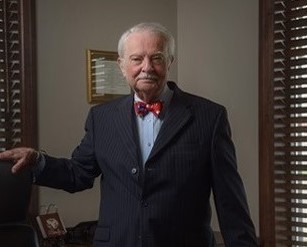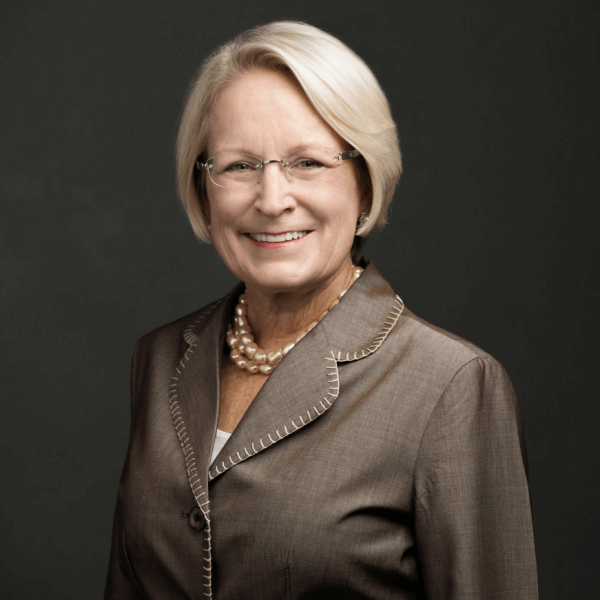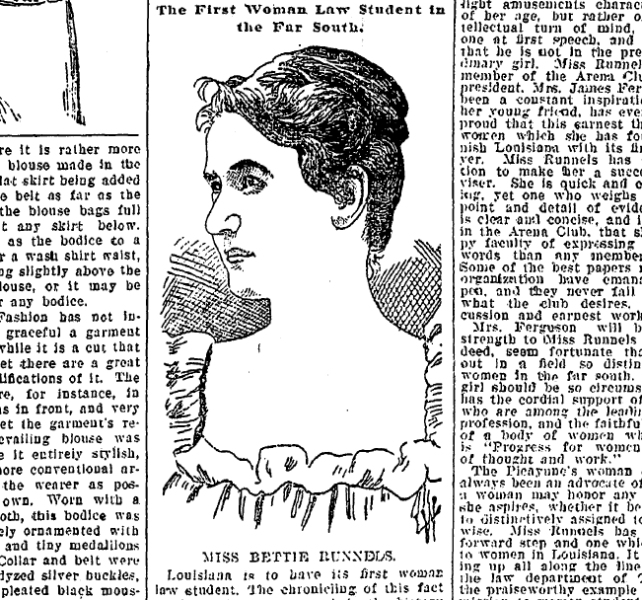Honorees for the Tulane Law Hall of Fame include trailblazers and firsts
The 2023 Tulane Law School Hall of Fame honored path-breaking alumni and faculty whose accomplishments have elevated the legal profession and the global stature of Tulane Law.
This year’s honorees include the first woman to graduate Tulane Law (or any law school in the Deep South) in 1898; a stalwart leader of the New Orleans legal community; a powerhouse lobbyist who has worked tirelessly to protect the vulnerable; a former American Bar Association president; a trailblazing leader of one of the world’s largest global law firms; a legendary Tulane Law professor and global expert in comparative law; and a respected federal judge who has devoted his life to public service.
“These seven alumni represent the very best of Tulane Law School,” said Dean David Meyer. “We honor them not only for their towering achievements, but also for how they have each modeled the highest ideals of the legal profession – using their talents to expand access to justice, protect those in need, and knock down barriers to equal opportunity and leadership.”
The honorees were inducted into the Hall of Fame on Friday, May 12 at a luncheon and ceremony alongside their family and friends.
This year’s honorees are:
Jack C. Benjamin, Sr. (A&S '48, L *50, posthumous). For more than six decades before his passing in 2018, Benjamin was a renowned trial lawyer and civic leader in New Orleans. Widely respected as a dean of the New Orleans trial bar, Benjamin began his career as an Assistant U.S. Attorney and was a founding partner of Gainsburgh, Benjamin, David, Meunier & Warshauer, LLC.
Benjamin’s leadership in the profession was honored regularly by his peers. He was President of the New Orleans Bar Association, the Louisiana Organization for Judicial Excellence, and the Louisiana Center for Law and Civic Education, which he helped establish. Benjamin was awarded the Distinguished Attorney Award by the Louisiana Bar Foundation, and the New Orleans Bar Association's Presidents' Award, in addition to being the recipient of the Distinguished Maritime Lawyer Award by the New Orleans Bar Association.
Benjamin was active with his alma mater throughout his life. He served on numerous alumni and advisory boards, including the Advisory Board of the Maritime Law Center, the Law School Dean's Advisory Board and was as a leader of the Tulane Law Inn of Court.
Benjamin was instrumental in the formation of Court Appointed Special Advocates of New Orleans (CASA) and served on it board for many years. He also was influential in the growth of Covenant House, where he was serving as a Board Member Emeritus at the time of his death.
Benjamin received the Endowment Achievement Award from the Jewish Endowment Foundation and was a recipient of the Weiss Award from the New Orleans Council for Community and Justice (NOCCJ). He served as President of the Metropolitan Crime Commission and was the first Jewish Chairperson of the Archbishop's Community Appeal and received the Benemerenti Medal awarded by Pope John Paul II.
He served his country as a Staff Sergeant in the U.S. Army Quartermaster Corp and later as a First Lieutenant, JAG with the U.S. Army Reserve.
Ronald L. Book (L *78), President and Chief Executive Officer, Ronald L. Book, P.A. For more than four decades, Book has been recognized as one of Florida’s most powerful and effective lobbyists. Book began his career in government, working for the Florida Legislature and later serving as Special Counsel and head of Legislative Affairs for Florida Governor Bob Graham. After leaving government service, Book headed up the government relations practice for Miami-based Sparber, Shevin, Shapo, Heilbronner & Book, one of Florida’s most influential law firms from 1977 to 1987. He then founded his own firm in 1987, representing a large number of A-list clients including multinational corporations, professional sports franchises, municipal and state governments, and universities.
Throughout his career, Book has regularly dedicated his talents and advocacy to public causes, especially to protect children from sexual abuse and to combat homelessness. For more than a quarter-century, Book has served as Chair of the Miami-Dade County Homeless Trust, helping develop a comprehensive strategy for assisting the homeless that has been hailed as a national model. And he also serves as Board Chair for the Lauren’s Kids Foundation, a not-for-profit entity he founded with his daughter, Florida State Senator Lauren Book. The Lauren’s Kids Foundation is dedicated to ending childhood sexual abuse through education and awareness and helping survivors heal with guidance and support. The foundation educates adults and children about sexual abuse prevention through in-school curricula that is currently offered in over 90,000 classrooms nationwide.
In January 2023, Book was honored at the Florida Supreme Court with the Florida Bar President’s Pro Bono Service Award for 2023 for the 11th Judicial Circuit, recognizing his exemplary service to others throughout his career.
Shauna Johnson Clark (L *94), U.S. Chair and Head of Employment and Labor, Norton Rose Fulbright U.S. LLP. A leading labor and employment lawyer, Clark is the U.S. Chair of Norton Rose Fulbright, one of the world’s five largest law firms with more than 50 offices and 3,000 attorneys around the globe. Clark also served as Global Chair of the firm in 2021 and leads its employment and labor practice.
She joined the firm after her graduation from Tulane Law in 1994 and quickly rose to its leadership ranks, serving as Partner-in-Charge of the firm’s Houston office from 2011 until 2013 and continuing to serve on the firm’s Global Executive Committee and U.S. Management Committee. The first woman of color to lead Norton Rose as Global Chair and U.S. Chair, she was also the sole woman of color to chair an AmLaw 200 firm at the time of her appointment in 2020. She is an active member of the firm's Diversity and Inclusion Committee and Racial Equality Council and is a powerful advocate nationwide for a more inclusive legal profession.
Clark was recently named the recipient of the 2022 Karen H. Susman Jurisprudence Award by the Anti-Defamation League’s (ADL) Southwest Region, recognizing her exemplary civic leadership and dedication to the ideals of equality and justice.
The Honorable F. A. Little, Jr. (A&S ’58, L *61), retired United States District Judge of the United States District Court for the Western District of Louisiana.
Judge F.A. “Pappy” Little, Jr., served with distinction for 22 years on the federal bench, establishing a national reputation as an outstandi ng jurist. Little was nominated to the U.S. District Court for the Western District of Louisiana by President Reagan in 1984 and served as Chief Judge from 1996 to 2002. During his service as a District Judge, Little regularly sat by designation on the U.S. Courts of Appeals for the Fifth and Sixth Circuits, hearing appeals in more than 250 cases. After retiring from the federal bench in 2006, Judge Little accepted appointment as Chief Justice for the Coushatta Tribe in Louisiana, a position he held until 2015.
ng jurist. Little was nominated to the U.S. District Court for the Western District of Louisiana by President Reagan in 1984 and served as Chief Judge from 1996 to 2002. During his service as a District Judge, Little regularly sat by designation on the U.S. Courts of Appeals for the Fifth and Sixth Circuits, hearing appeals in more than 250 cases. After retiring from the federal bench in 2006, Judge Little accepted appointment as Chief Justice for the Coushatta Tribe in Louisiana, a position he held until 2015.
Before his appointment to the bench, Judge Little built a distinguished career in law practice. After beginning his law practice in New Orleans after law school, Little moved to Alexandria in 1965 and played a leading role in building the Gold Weems firm into one of the state’s most respected law firms. Little led the firm, then known as Gold, Little, Weems, Bruser, Sues & Rundell, as president until his appointment to the bench. He rejoined the firm as Of Counsel in 2015 after leaving his post as Chief Justice of the Coushatta Tribe.
Throughout his career, Judge Little contributed to legal scholarship, lecturing on constitutional law and publishing extensively on constitutional and tax law for the Tulane Law Review, Tax Law Review, and Hastings Law Journal. He has also been active in advancing the cause of law reform, long-serving on the Council of the Louisiana Law Institute.
Judy Perry Martinez (L *82), Partner, Simon, Peragine, Smith & Redfearn.
Perry Martinez is a former president of the American Bar Association and a tireless advocate for the highest ideals of the legal profession. B efore assuming the presidency of the ABA in 2020, Perry Martinez built a sterling career in law practice, both as a litigation partner at Simon, Peragine, Smith & Redfearn in New Orleans and then as an in-house counsel and executive at Northrop Grumman, the leading aerospace and defense technology company.
efore assuming the presidency of the ABA in 2020, Perry Martinez built a sterling career in law practice, both as a litigation partner at Simon, Peragine, Smith & Redfearn in New Orleans and then as an in-house counsel and executive at Northrop Grumman, the leading aerospace and defense technology company.
Perry Martinez joined Northrop Grumman in 2003, where she would go on to serve as assistant general counsel for litigation, managing litigation for the western half of the country before becoming Vice President and Chief Compliance Officer in 2011. She also was named to the company’s Diversity and Inclusion Leadership Council.
Perry Martinez retired from Northrop Grumman in 2015 to become a Fellow at the Advanced Leadership Initiative at Harvard, where she spent a year in residence. Following her time at Harvard, she returned to New Orleans to pursue a career in public service and rejoined Simon Peragine, where she continues that work.
In 2011, she was appointed chair of the ABA Standing Committee on the Federal Judiciary, which evaluates all prospective nominees to the federal bench. Earlier, she served as the ABA lead representative to the United Nations, as a member of the ABA Board of Governors and its executive committee, and as a member of the ABA Commission on Women in the Profession and the Task Force on Building Public Trust in the American Justice System. Most recently, Perry Martinez served as the chair of the ABA Presidential Commission on the Future of Legal Services and as a special advisor to the ABA Center for Innovation. She is a member of the American Law Institute and has previously served on the Board of Directors of the American Bar Foundation, where she is a Fellow.
Perry Martinez’ commitment to public service began years ago when she and other members of the Louisiana Bar undertook an effort to establish the New Orleans Pro Bono Project. She also has served as a Distinguished Access to Justice Pro Bono Fellow for Southeast Louisiana Legal Services. Perry Martinez also served as chair of the 170,000-member ABA Young Lawyers Division, a member of the ABA Commission on Women in the Profession and the Council of the Section of Litigation, and chair of the ABA Commission on Domestic Violence.
She has received numerous honors for her leadership and service, including the Sam Dalton Capital Defense Advocacy Award from the Louisiana Association of Criminal Defense Counsel; the Michaelle Pitard Wynne Professionalism Award from the Association of Women Attorneys; and the Alliance for Justice Award from the National Gay and Lesbian Law Association; the Camille Gravel Public Service Award from the New Orleans chapter of the Federal Bar Association; the David A. Hamilton Lifetime Achievement Award from the Louisiana State Bar Association; and the President’s Award by the New Orleans Bar Association. She was named The Outstanding Young Lawyer in the State of Louisiana in 1990 and the Louisiana Bar Foundation’s 2001 Distinguished Attorney.
Vernon Valentine Palmer (A&S '62, L *65), Thomas Pickles Chair and Co-Director, Eason Weinmann Center for Comparative Law, Tulane Law School.
Professor Vernon Valentine Palmer graduated from Tulane Law School in 1965 and returned to join its faculty five years later. For the past five decades, Professor Palmer has taught and mentored generations of Tulane lawyers and helped to cement Tulane’s reputation as a world leader in civil and comparative law.
Palmer’s preeminence as a comparative legal scholar has been recognized by the International Academy of Comparative Law in Paris, which named him in 2022 one of the World's Five Greatest Comparativists.
Palmer has authored more than 50 books and articles on the comparative law of obligations, code revision, legal history, delictual liability and third-party beneficiary contracts. Among other path-breaking work, Palmer is the author of Through the Codes Darkly: Slave Law and Civil Law in Louisiana (The Lawbook Exchange 2012) and editor of Mixed Jurisdictions Worldwide (Cambridge University Press 2nd edition 2012), the leading text in the field. His most recent book, The Lost Translators of 1808 and the Birth of Civil Law in Louisiana (Univ. of Georgia Press 2021), reshaped his understanding of Louisiana’s unique legal history by uncovering the leading influences on the formation of Louisiana’s Civil Code.
Palmer received the Sumter Marks Award in 2000 and 2001 in recognition of his research, and in 2005, he received the Tulane University Provost’s Award for Excellence in Research and Scholarship. In 1986-87 and 1992-93, Palmer held the Chair of Common Law at the University of Paris (Sorbonne), and in subsequent years has been a Visiting Professor of Comparative Law at Bucerius Law School in Hamburg; the Ramon Llull University in Barcelona; the University of Trent in Trento, Italy; the University of Lausanne; the University of Geneva; and the University of Fribourg. He was organizing chair of the First Worldwide Congress on Mixed Jurisdictions, held in New Orleans in 2002, and is the founder and President of the World Society of Mixed Jurisdiction Jurists. In 2003, he was elected a titulary member of the International Academy of Comparative Law at the Hague.
Bettie Runnels (L’1898, post-humous) First woman to graduate from Tulane Law School and the first female lawyer in Louisiana.
Born in 1871 in Texas, Runnels moved to Louisiana as a child and grew up in New Orleans. She was drawn to law and was working as a stenographer for a New Orleans law practice when, in 1894, the Louisiana legislature changed the law to permit universities in the state for the first time to issue professional degrees in law, medicine, and pharmacy to women. Runnels resolved to realize her dream of becoming a lawyer and became the first woman to apply to Tulane Law School. According to a news report in the Daily Picayune, the law school’s then-new Dean, Harry Hall, granted her admission after confirming the change in state law and affirmatively welcomed her to the class. Upon her enrollment, Runnels became not only the first female law student in Louisiana but the entire Deep South.
working as a stenographer for a New Orleans law practice when, in 1894, the Louisiana legislature changed the law to permit universities in the state for the first time to issue professional degrees in law, medicine, and pharmacy to women. Runnels resolved to realize her dream of becoming a lawyer and became the first woman to apply to Tulane Law School. According to a news report in the Daily Picayune, the law school’s then-new Dean, Harry Hall, granted her admission after confirming the change in state law and affirmatively welcomed her to the class. Upon her enrollment, Runnels became not only the first female law student in Louisiana but the entire Deep South.
The Picayune hailed Runnels for her seriousness and ambition – “one of the most intelligent young women in New Orleans, and in every way a credit and honor to her sex” – but noted that she would bear the burden of being a pioneer. Besides being the only woman in her class, it noted that she would have to “burn the candle at both ends” by continuing to work as a stenographer to put herself through school.
“The career of Miss Runnels will be watched with interest, not only by the women of Louisiana but by the entire nation,” the Picayune wrote. “For it is a great thing, a solemn thing, to be the pioneer in any cause.”
After her graduation in 1898, Runnels was admitted to practice in Louisiana, becoming the first female attorney licensed in the state. She later moved to the Chicago area and died in 1943.
